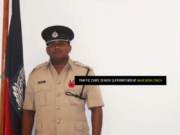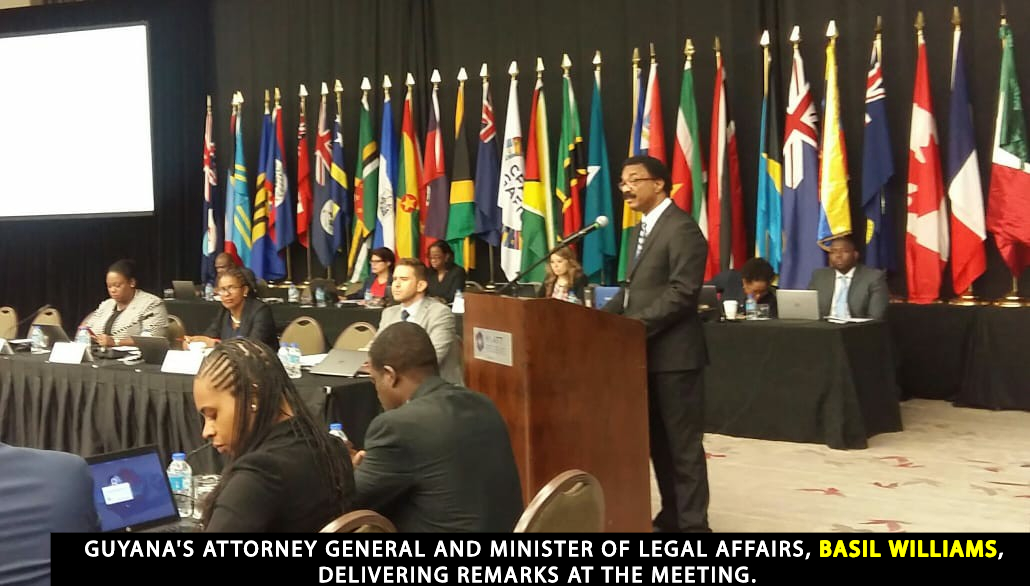As small Caribbean Member States continue to wrestle low financial growth, disaster recovery and the de-risking phenomenon; resources are being spread thin. This, in turn, poses challenges to the implementation of a necessary component to ward off the financing of terrorism and money laundering within the Region.
Guyana’s Attorney General (AG), and Minister of Legal Affairs Basil Williams, made this disclosure following the commencement of the Caribbean Financial Action Task Force (CFATF)’s 47th Plenary Meeting held in the twin-island Republic of Trinidad and Tobago, last Wednesday. The meeting successfully concluded two days later.
Speaking in his capacity as Chairman of the CFATF, AG Williams noted that low financial growth, recovery from natural disasters such as hurricanes, and de-risking of financial environments, are obstacles in the implementation of the Fourth Round of Mutual Evaluations.
Williams explained that because of these issues, “resources are being stretched”.
Nevertheless, he applauded the resilience of small Member States as they continue to put their shoulders to the wheel by employing best efforts to strengthen, legislatively, the Anti-Money Laundering and Countering Financing of Terrorism (AML/CFT) frameworks.
The Guyanese politician also said that nations are making every effort to impress the establishment of measures to deal with Proliferation Financing (PF) and implement the AML/CFT laws and processes to a level that can be considered as ‘high’ or substantial’ levels of effectiveness.
The Fourth Round of Mutual Evaluations are being conducted based on the FATF Recommendations (2012), and the Methodology for Assessing Compliance with the FATF Recommendations and the Effectiveness of AML/CFT Systems (2013), as amended from time to time. This document sets out the procedures that are the basis for that fourth round of mutual evaluations. The scope of the evaluations will involve two inter-related components for technical compliance and effectiveness. The technical compliance component will assess whether the necessary laws, regulations or other required measures are in force and effect, and whether the supporting AML/CFT institutional framework is in place. The effectiveness component will assess whether the AML/CFT systems are working, and to examine the extent to which the country is achieving the defined set of outcomes.
Despite the obstacles, the Chairman expressed confidence that CFATF Members will continue to improve their compliance with the FATF Standards and increase their levels of effective implementation. In this regard, he spoke about his own efforts as Chairman. AG Williams noted that his Work Programme has so far been in the interest of addressing the important areas of training and funding. He referred to the recently concluded AML/CFT training for Judges and Prosecutors, which was conducted in Guyana’s Capital, Georgetown, last month.
The AG expressed thanks to the Secretary-General of the Commonwealth; the Right Honourable Baroness Patricia Scotland, and her team from the Commonwealth Secretariat, the Caribbean Development Bank (CDB) and the Government of Guyana (GoG) for funding the Workshop. He also reinforced his commitment as Chair of the organisation, by assuring the CFATF that there will be other opportunities for training.
Attending the meeting also, were regional Attorneys General including: Trinidad and Tobago’s Faris Al Rawi; Grenada’s Lawrence Joseph; The Cayman Islands’ Samuel Bulgin; Heads of Delegation, Member delegates, and officials from the Cooperating and Supporting Nations (COSUNs) and Observer Organisations.













